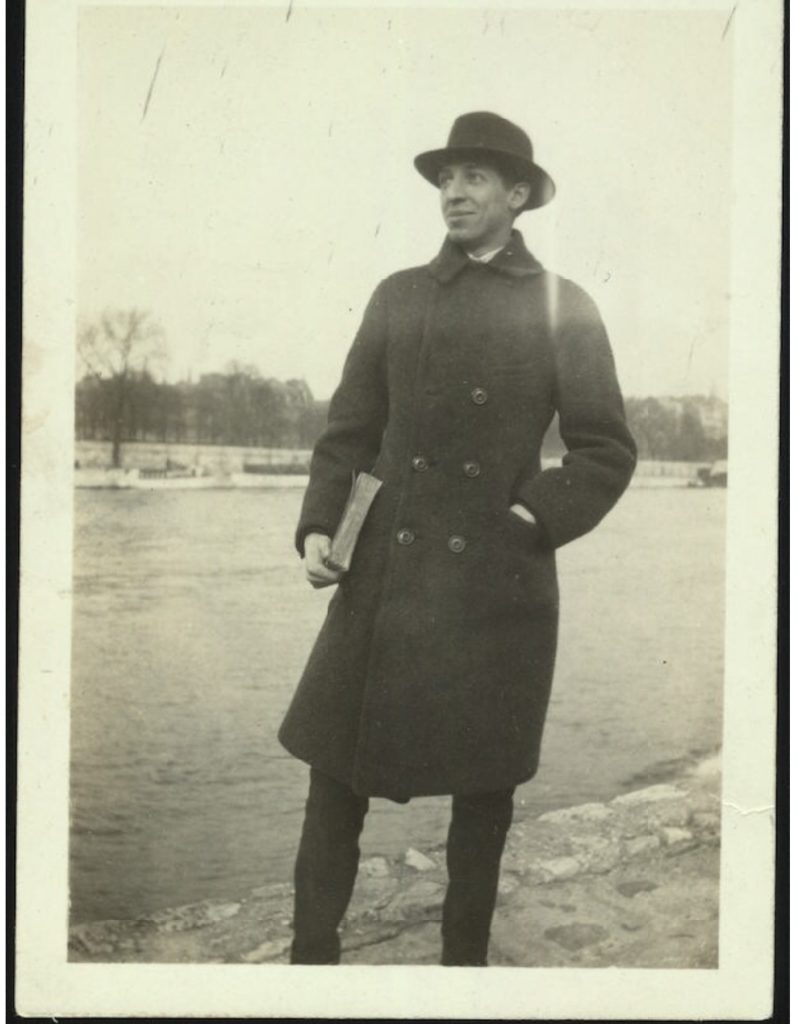Aaron Copland in France, 1921-1924

Aaron Copland (1900-1990) never went to college. It was a decision that he later claimed to regret, although it’s hard to imagine how he could have gotten a better education than the one he actually received. He had begun to study music composition with the well-know and highly respected composer and teacher Rubin Goldmark (1872-1936) in the fall of 1917, during his senior year of high school in Brooklyn, New York. Copland graduated from high school in the spring of 1918 and continued his lessons with Goldmark while living at home. At the same time, he had the vibrant New York music and theater scene at his disposal and the full support of his family to pursue his musical studies (as an indication of that support, his father bought him a Steinway grand in 1919).
Goldmark was an alum of the Vienna Conservatory and at the National Conservatory of Music in New York City, and he gave Copland exactly the sort of rigorous and vigorous grounding in harmony, counterpoint, and musical form that the young dude required. But even as Copland thrived under Goldmark’s regimen, he did what your people have always done and hopefully will always continue to do: he rebelled. Goldmark was a musical conservative, grounded in eighteenth and nineteenth century German music. However, Copland’s tastes ran towards Italian opera, Russian romantic music and, even worse, those new-fangled modernists Alexander Scriabin (1872-1915), Igor Stravinsky (1882-1971) and, most of all, that crazy Gallic impressionista, Claude Debussy (1862-1918).
Copland’s growing infatuation with musical things French was intensified a gazillion (give-or-take) fold by his friend Aaron Schaffer (1894-1957). The 16-year-old Copland met first met Schaffer in 1916 when he – Schaffer – was a 22-year-old graduate student in literature at John Hopkins University. Schaffer taught at Hopkins until 1919, studied in France between 1919 and 1920, and then joined the faculty at the University of Texas, where he taught the French language and French literature for the remainder of his life.
Despite their age difference, Copland and Schaeffer shared a passion for music and literature and corresponded regularly. Schaffer’s letters to Copland from Paris in 1919 and 1920 described what was the thrilling, post-war Parisian new music scene. In one of his letters, Schaffer commented:
“I am sure you would be in your glory here.”
Statements like that one sealed the deal for Aaron Copland, who acknowledged Schaffer’s description of music in France as being:
“the source of inspiration in my desire to go to Paris.”
Copland sailed for France in June 1921; he intended to stay and study there for one year. Instead, he stayed (and studied and networked and attended concerts and travelled and performed) for three years: it was what amounted to his college/university education.
And what an education it was!…
Continue reading, only on Patreon!
Become a Patron!